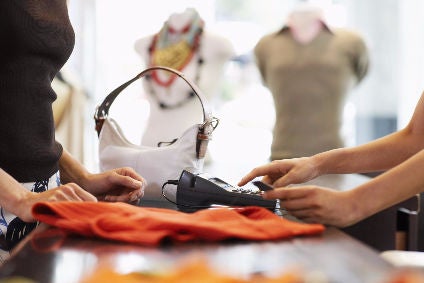
Clothing company G-III Apparel Group says it is taking a number of steps to offset the impact of the ongoing trade war between the US and China, including reducing its production in China and raising prices.
The plans were revealed during the company’s first-quarter earnings call last week, after the company reported a 3.6% year-on-year rise in net sales to US$633.6m for the period ended 30 April. The company also booked net income for the first quarter of $12m compared to $9.9m the year before.

Discover B2B Marketing That Performs
Combine business intelligence and editorial excellence to reach engaged professionals across 36 leading media platforms.
G-III is a private label producer and supplier of licensed brands including Tommy Hilfiger, Levi’s and Calvin Klein. It has just inked a five-year licensing deal with PVH Corp to produce and distribute Calvin Klein Jeans women’s wear collections in the US and Canada.
G-III’s business is heavily exposed to China, so the additional license is expected to help offset pressure if the tariffs on the remaining $330bn of imports into the US are implemented. In 2017, G-III Apparel Group generated around 88% of its 2017 revenue in the US, and purchased around 65% of its 2017 inventory from China.
Diversifying sourcing networks
Speaking on the earnings call, G-III CEO Morris Goldfarb said the company is expecting an “incremental” 15% increase in tariffs for the remainder of fiscal 2020 to lift costs by about $6m, which it has included in its guidance. But he warned price increases would be felt by its customers and end-consumers following any tariff hikes.

US Tariffs are shifting - will you react or anticipate?
Don’t let policy changes catch you off guard. Stay proactive with real-time data and expert analysis.
By GlobalData“We have been seeking to diversify our sourcing networks by arranging to move some production out of China, and also succeeded in obtaining price concessions from our Chinese vendors,” said Goldfarb.
“In addition, we have obtained price increases from some of our customers here in the US. As for the proposal to increase tariffs on the remaining categories imported from China, we have had in-depth conversation with our vendors and our retailers and although there’ll likely be short term disruption, all parties are willing to share in the increased cost. We have not quantified the impact of the potential near-term disruption on our results of operations should these increases come into effect.
“We believe that our customer who is shopping in department stores is one who appreciates aspirational brands and is willing to pay more for our products. These price increases will be supported by the fact that we have the best global power brands, well designed products at the highest quality, better real estate positioning in the stores and our always price better than our competition.
“Looking ahead, we recognise the need to further reduce our production in China to a level where we can still maintain the consistent high quality and craftsmanship that we have developed with our vendors over the past 40 years.”
However, Goldfarb assured shifting production to other factories and countries would not be at the expense of product quality, adding the company was concerned a radical move like taking total production out of China to avoid tariffs could cost it.
“We are not choosing factories or countries solely on the merit of tariff. We have great product. We work hard at developing these relationships. We are not very fast to give them up. In a perfect world, these tariffs wouldn’t be in play – but if they are and they become a reality, I assure you that we will find a solution. We’re not going to abandon 40 years of hard work and quality product for entering into a virgin territory and risking our company. That’s not who we are, so there might be some short term pain in margin but I believe this is the best solution for us.”
Commenting, Susan Anderson, analyst at B Riley, said China tariffs impact about 7% of sales, primarily in the handbag category, and welcomed the moves the group was making to navigate the situation.
“Management is utilising a number of tools to mitigate these costs including shifting sourcing out of China, seeking price concessions from suppliers and selectively raising prices. We believe G-III is being methodical in their plan to shift their vendor base, and are focused on partnering with suppliers that can deliver the same reliability and quality as their Chinese partners.”





